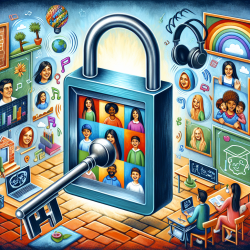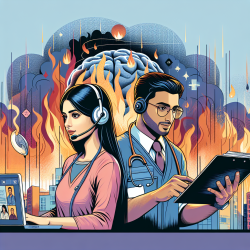Communication is a cornerstone of effective healthcare delivery. Despite its importance, many practitioners struggle with maintaining optimal communication skills throughout their careers. The research article "Physician Communication Coaching: How Psychologists can Elevate Skills and Support Resident Education, Professionalism, and Well-being" offers valuable insights into how psychologists can play a pivotal role in enhancing these skills among medical residents.
The Role of Psychologists in Communication Coaching
The University of Rochester's Physician Communication Coaching program exemplifies an innovative approach where psychologists serve as communication coaches. These professionals leverage their expertise in behavior change and wellness promotion to provide real-time feedback to residents during patient interactions. This model not only improves communication but also addresses broader systemic issues such as professionalism and physician well-being.
Key Components of the Coaching Program
- Real-Time Observation: Coaches observe patient encounters using an expanded Cambridge-Calgary Patient-Centered Observational Checklist.
- Individualized Feedback: Residents receive detailed reports highlighting strengths and areas for improvement.
- Systemic Integration: Coaches are embedded within clinical departments to foster a culture of continuous feedback and improvement.
The Impact on Resident Education
The program has shown significant positive outcomes. From 2013 to 2020, 279 residents were coached, with 97% finding the experience helpful. The program's success underscores the importance of integrating psychological expertise into medical training to enhance communication skills.
Addressing Professionalism and Wellness
The coaching program also targets professionalism and wellness—two critical areas often neglected in traditional medical training. By identifying early signs of burnout and providing resources for stress management, the program supports both patient care quality and physician well-being.
The Broader Implications for Healthcare Systems
This model of communication coaching has implications beyond individual skill development. It contributes to a culture of feedback and self-improvement within healthcare systems, promoting better patient outcomes and higher satisfaction rates.
Encouraging Further Research
The success of the University of Rochester's program suggests that similar models could be beneficial in other settings. Practitioners interested in improving their communication skills or those involved in resident education should consider exploring this research further.










